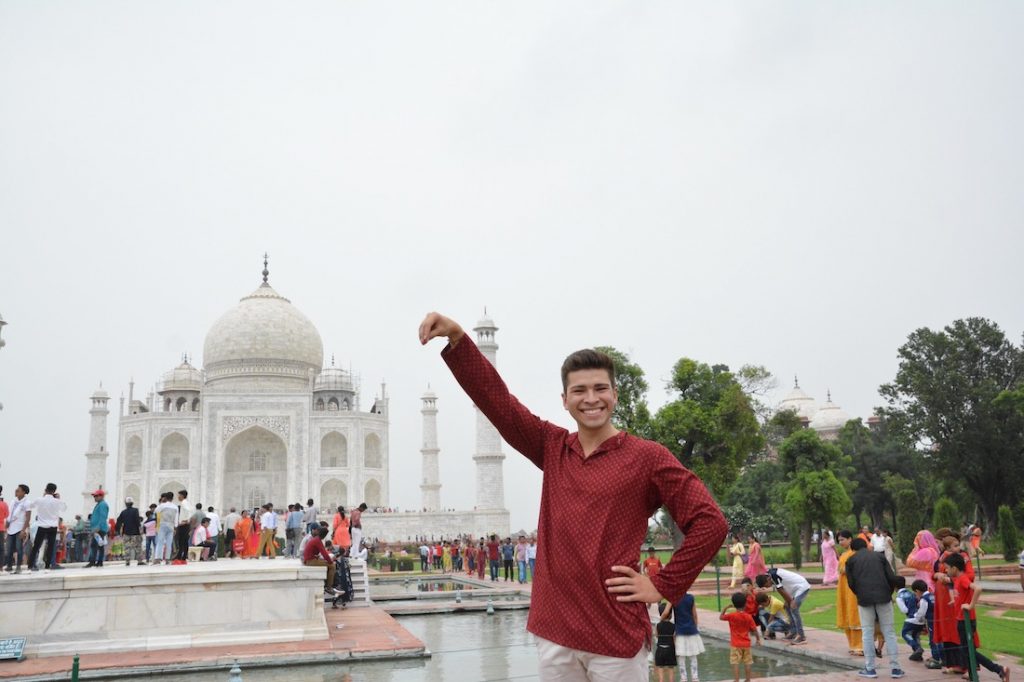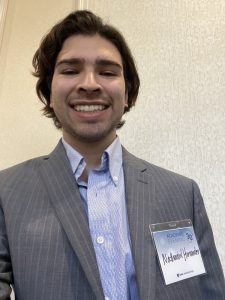
Former Duke Men’s Swimming and Diving team member Nathaniel Hernandez is now pursuing a PhD in Pharmacology at his alma mater, Duke University. Also an ACE in India 2018 alum, Hernandez shares how ACE helped him become a better research professional by teaching him about culturally sensitive service and inspiring him to switch his research focus to a human-centered approach.
What are you doing now? How did ACE influence your career pathway?
I am starting my third year of my PhD program in Pharmacology at Duke University. I work in the lab of Dr. Andrea Nackley where I research the epigenetic regulation of chronic primary pain conditions, such as fibromyalgia and IBS.
Professionally, ACE has influenced my passion for teaching and training new students in my research lab. Further, it is important to me that my basic science research is translatable to human health outcomes thanks in part to my experience in India. Finally, my research team has included members from many different countries who speak many different languages. ACE has helped expand my inter-cultural understanding and motivated me to become small-talk conversational in different languages to create a more inclusive and understanding environment for my co-workers.
“Playing games and sharing stories with kids struggling with drug abuse changed the way I perceive addiction and inspired me to switch my research focus to a human-centered approach.”
– Nathaniel Hernandez, ACE in India 2018
Personally, ACE has influenced my passion for travel and exploration. While the pandemic and my time-demanding occupation have hampered my ability to travel abroad, I hope that I can soon continue expanding my horizons and learn first-hand from different regions and cultures in the world.

Share one lesson from ACE that still holds true today.
Having the experience of working with SPYM, an NGO providing drug rehabilitation and education to children throughout India, helped me to un-learn my stigma toward drug addiction and humanize this important health condition. Playing games and sharing stories with kids struggling with drug abuse changed the way I perceive addiction and inspired me to switch my research focus to a human-centered approach.
While many scientists put new scientific discovery at the forefront of their research efforts, I try to instead to focus on patients and human-centered health outcomes first when developing my research strategies due to my experiences with SPYM in India.
Describe your ACE experience in as few words as possible:
Incredible; Unforgettable; Transformative.
How have you kept in touch with people from your ACE program?
I still keep in touch with most of my ACE teammates from Duke and Stanford! We’re always sharing memories, photos, and stories over FaceTime and social media.
